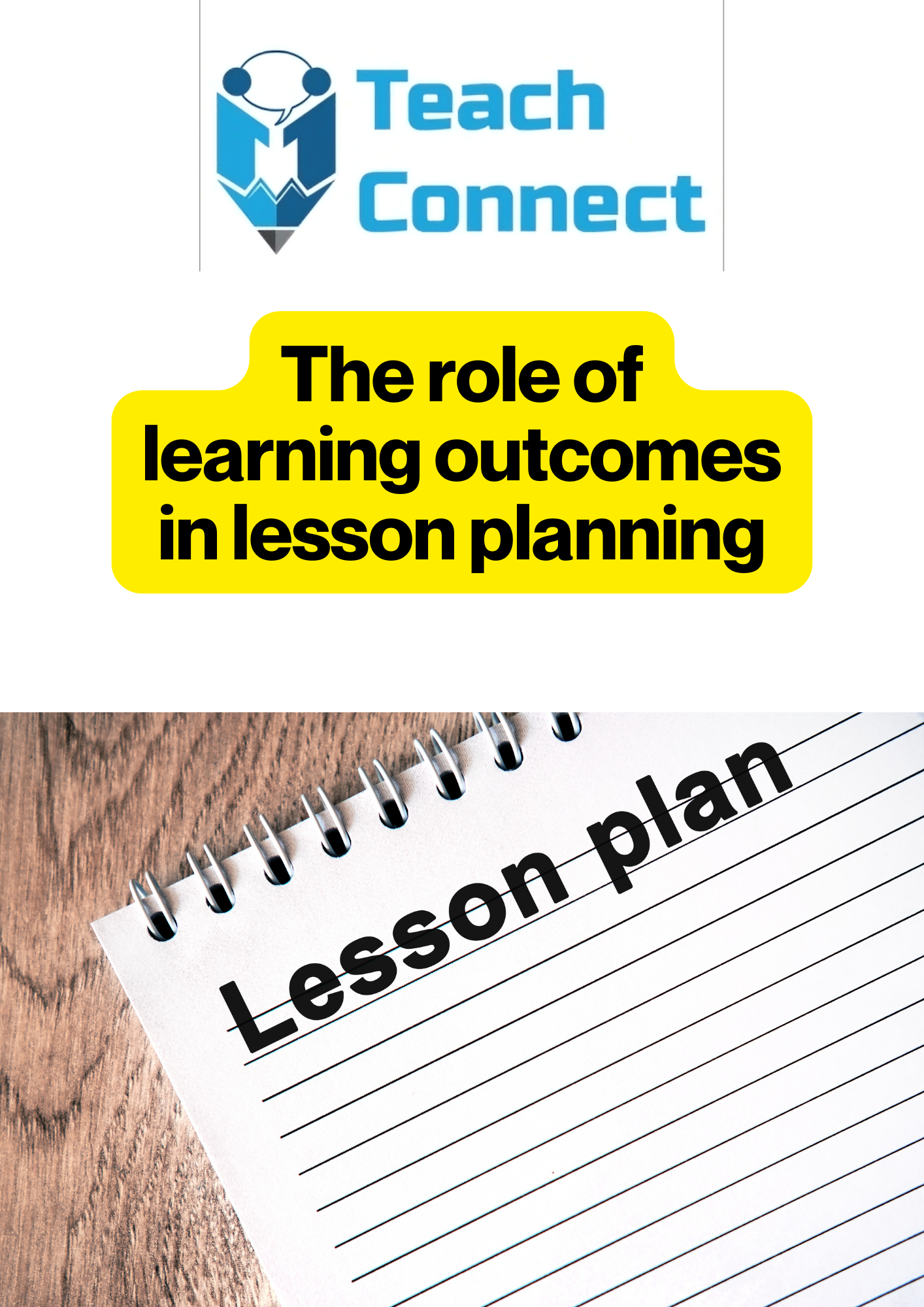Introduction: Why Learning Outcomes Matter
Learning outcomes serve as the foundation for every effective lesson plan.
They offer a clear roadmap for both teachers and students by specifying what a learner should know, understand, and be able to do by the end of a lesson or unit.
When teachers define outcomes clearly, lessons become purposeful, activities become meaningful, and learning becomes measurable.
1. What Are Learning Outcomes?
Learning outcomes are clear statements describing the expected results of learning.
They guide teachers to focus on what students must achieve rather than only what will be taught.
Each outcome answers three vital questions:
- What should the student know?
- What should the student understand?
- What should the student be able to do?
This three-part framework helps teachers design lessons with direction and intent.
2. Aligning Teaching with Learning Outcomes
To ensure every activity supports the intended learning, teachers must align:
- Instructional strategies
- Classroom activities
- Assessment methods
This alignment guarantees that all classroom efforts work toward a shared goal — successful learning.
If a teacher moves to the next topic without defined outcomes, the connection between lessons breaks. A clear direction prevents this loss of continuity.
3. Choosing the Right Resources
Resources play a key role in keeping students focused and attentive.
Teachers must select the right tools — multimedia materials, hands-on activities, or case studies — that reinforce the learning outcomes.
Well-chosen resources help reduce distractions, maintain engagement, and strengthen concept retention.
4. Boosting Student Engagement
When learning outcomes are clear, students understand why they are learning something.
This sense of purpose increases motivation and concentration.
Linking outcomes to real-life applications, career paths, or interdisciplinary learning makes lessons more meaningful and future-oriented.
Engagement also deepens when activities cater to multiple intelligences as described by Howard Gardner — linguistic, logical, spatial, musical, kinesthetic, interpersonal, intrapersonal, and naturalistic.
Such lessons help students collaborate, think critically, and communicate effectively.

5. Connecting Learning and Assessment
A clear direction in teaching simplifies both formative and summative assessments.
When students are engaged and lessons are outcome-driven, they retain concepts longer.
This allows teachers to draw out transferable learning — applying knowledge in new situations — and evaluate students based on deeper understanding rather than memorization.

6. Encouraging Reflection and Deeper Thinking
Reflection transforms surface learning into deep learning.
After every activity, teachers can pause for reflection — even ten minutes of journaling or discussion helps students internalize concepts.
This practice builds self-awareness, confidence, and long-term retention.
7. From Engagement to Employability
Outcome-based learning connects academic skills to life skills.
Through collaborative projects and reflective learning, students strengthen:

- Teamwork
- Communication
- Social-emotional intelligence
- Problem-solving and decision-making
These cognitive and interpersonal abilities form the foundation of employability skills — preparing students for real-world success.

Conclusion: The Purpose of Lesson Planning
Every lesson should aim for deep, connected learning.
When outcomes link one lesson to another, learning progresses naturally — yesterday’s questions find answers in tomorrow’s plans.
Through this approach, teachers not only improve engagement but also nurture lifelong learners ready for complex, changing futures.

Dr. Padmavathy Tungaturthi
Managing Director
TeachConnect Pvt. Ltd
Dr. Padmavathy Tungaturthi is an experienced educator and thought leader with over two decades in teaching and training. She is dedicated to empowering teachers and improving student learning through innovative teaching strategies, holistic education, and technology integration.
As the Managing Director of TeachConnect, she creates meaningful connections between teachers and schools, inspiring educational excellence across India.
www.teachconnect.in


Leave a Reply